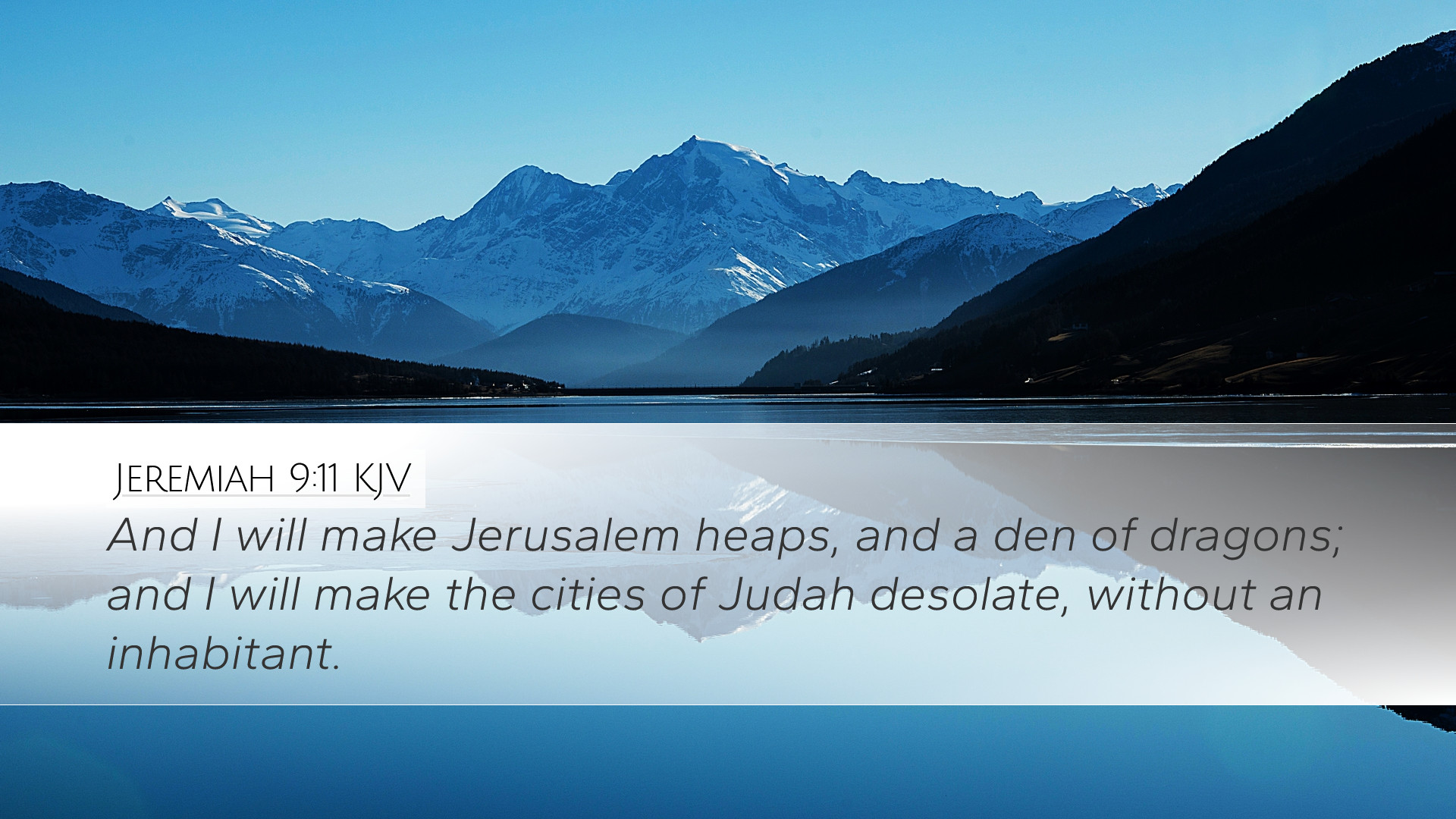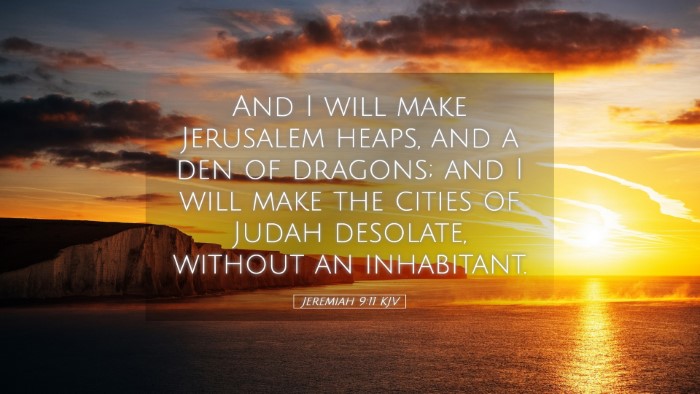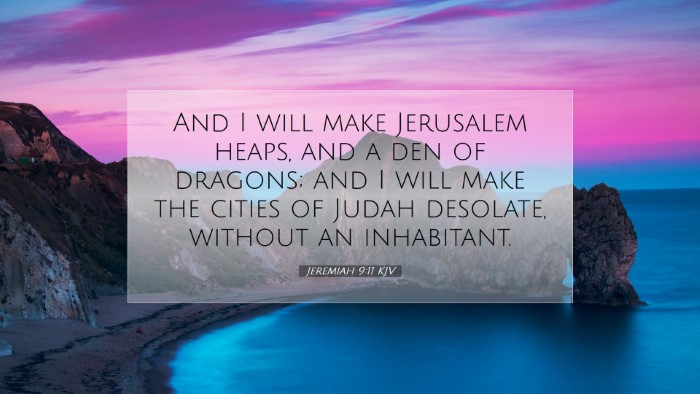Commentary on Jeremiah 9:11
Jeremiah 9:11 states: "And I will make Jerusalem heaps, and a den of dragons; and I will make the cities of Judah desolate, without an inhabitant." This verse captures God's judgment upon Jerusalem, portraying the stark reality of devastation that will befall the once prosperous city.
Contextual Background
Jeremiah, often referred to as the "Weeping Prophet," prophesied during a time of great turmoil in Judah. His messages were aimed at a people who had turned away from God and engaged in idolatry and wickedness. Understanding the historical and cultural context during which Jeremiah preached helps to grasp the weight of God's words of judgment in this verse.
Theological Implications
This verse emphasizes God's holiness and justice. The desolation promised serves a dual purpose: it acts as a warning against sin and a call to repentance. In confronting the idolatrous practices in Judah, God is portrayed as a righteous judge who cannot overlook unfaithfulness.
Insights from Public Domain Commentaries
Combining insights from various public domain commentaries provides a richer understanding of the text.
-
Matthew Henry
Matthew Henry notes that the phrase "heaps" denotes total destruction. He further explains that the reference to "a den of dragons" symbolizes the utter desolation where only wild animals would dwell, illustrating the complete abandonment of the city and its inhabitants.
-
Albert Barnes
Albert Barnes highlights the emotional gravity of God’s declaration. He points out that such a transformation of Jerusalem from a city full of life to being a wasteland signifies a profound theological statement about God's relationship with His people. The consequences of their actions lead to their isolation from God’s presence, akin to the loneliness experienced by the desolate cities.
-
Adam Clarke
Adam Clarke elaborates on the significance of the term "dragons." He explains that this could refer to various wild creatures in desolate lands, symbolizing chaos and the absence of order. Clarke draws attention to the broader implications of this devastation as a testament to God’s authority over nations and cities. His judgment is not isolated to the Israelites but serves as a universal truth regarding sin's consequences.
Spiritual Lessons for Believers
This verse serves as a powerful reminder of the ramifications of turning away from God. It calls believers to reflect on their own lives and communities to ensure they are aligned with God's will.
- Repentance: Just as Jerusalem faced judgment, believers today are urged to seek genuine repentance and a return to the faithfulness of God.
- God’s Sovereignty: The totality of God’s dominion over all creation is affirmed here. He has the power to bring nations to ruin or restore them according to His purposes.
- Hope in Desolation: While the imagery is grim, it invites a posture of hope. God’s justice ultimately leads to restoration for the penitent heart.
Conclusion
In Jeremiah 9:11, we encounter a profound declaration of God’s judgment, rich with meaning for theologians, scholars, and believers alike. The merging insights from historical context and public domain commentaries unlock deeper understanding, inviting reflection on sin, judgment, and the hope of redemption. As we study these words, may they stir our hearts towards vigilance in our spiritual lives and a deeper commitment to God's covenant.


